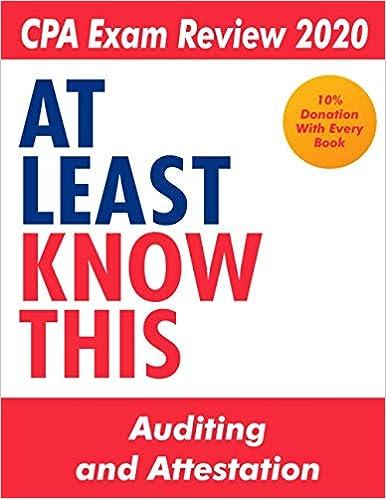Question
You have recently been promoted to Senior Consultant for the professional service firm APP, thanks in part to the hard work in leading the engagement
You have recently been promoted to Senior Consultant for the professional service firm APP, thanks in part to the hard work in leading the engagement for your client Guardian Angel. Your firm specializes in providing a wide variety of internal business solutions for different clients. After a weekend of celebrations from your promotion, a Senior Manager calls you into her office first thing Monday morning to help with a manufacturing client who is making a tough decision about closing a plant:
Low Rider (LR) manufactures seats for automobiles, vans, trucks, and boats. The company has a number of plants, including the Waterloo Cover Plant, which makes seat covers.
Bill Rice is the plant manager at the Waterloo Cover Plant but also serves as the regional production manager for the company. His budget as the regional manager is charged to the Waterloo plant.
Additional Information
Rice has just heard that LR has received a bid from an outside vendor to supply the equivalent of the entire annual output of the Waterloo Cover Plant for $42 million. Rice was astonished at the low outside bid because the budget for the plants operating costs for the coming year was set at $48.6 million. If this bid is accepted, the Waterloo operation will be closed down.
The budget for the Waterloo Cover Plants operating costs for the coming year is presented below.
| Materials |
| $16,000,000 |
| Labor: |
|
|
| Direct | $13,400,000 |
|
| Supervisor | $800,000 |
|
| Indirect plant | $3,800,000 | $18,000,000 |
| Overhead: |
|
|
| Depreciation - equipment | $2,600,000 |
|
| Depreciation - building | $4,200,000 |
|
| Pension expense | $3,200,000 |
|
| Plant manager and staff* | $1,200,000 |
|
| Corporate expenses** | $3,400,000 | $14,600,000 |
| Total budgeted costs |
| $48,600,000 |
*Expenses for Rice and his regional staff ** Fixed corporate expenses allocated to plants and other operating units based on total budgeted wage and salary costs.
Additional facts regarding the plants operations:
Due to the plants commitment to use high-quality fabrics in all of its products, the Purchasing Department was instructed to place blanket purchase orders with major suppliers to ensure the receipt of sufficient materials for the coming year. If these orders are cancelled as a consequence of the plant closing, termination charges would amount to 25% of the cost of direct materials.
Approximately 350 employees will lose their jobs if the plant is closed. This includes all of the direct laborers and supervisors, management and staff, and the plumbers, electricians, and other skilled workers classified as indirect plant workers. Some of these workers would have difficulty finding new jobs. Nearly all the production workers would have difficulty matching the plants base pay of $12.50 per hour, which is the highest in the area. A clause in the plants contract with the union may help some employees; the company must provide employment assistance and job training to its former employees for 12 months after a plant closing. The estimated cost to administer this service would be $1.6 million.
Some employees would probably choose early retirement because LR has an excellent pension plan. In fact, $1.4 million of the annual pension expenditures would continue whether the plant is open or not.
Rice and his regional staff would not be affected by the closing of the Waterloo plant. They would still be responsible for running three other area plants.
If the plant was closed, the company would realize about $4 million salvage value for the equipment in the plant. If the plant remains open, there are no plans to make any significant investments in new equipment or buildings. The old equipment is adequate for the job and should last indefinitely.
Required:
Without regard to costs, identify the advantages to LR of continuing to obtain covers from its own Waterloo Cover Plant.
LR plans to prepare a financial analysis that will be used in deciding whether or not to close the Waterloo Cover Plant. Management has asked you to identify:
The annual budgeted costs that are relevant to the decision regarding closing the plant (show the dollar amounts).
The annual budgeted costs that are not relevant to the decision regarding closing the plant and explain why they are not relevant (again show the dollar amounts).
Any non-recurring costs that would arise due to the closing of the plant and explain how they would affect the decision (again show any dollar amounts).
Looking at the data you prepared in (2) above, should the plant be closed? Show computations and explain your answer.
Identify any revenues or costs not specifically mentioned in the problem that AI should consider before making a decision.
Step by Step Solution
There are 3 Steps involved in it
Step: 1

Get Instant Access to Expert-Tailored Solutions
See step-by-step solutions with expert insights and AI powered tools for academic success
Step: 2

Step: 3

Ace Your Homework with AI
Get the answers you need in no time with our AI-driven, step-by-step assistance
Get Started


